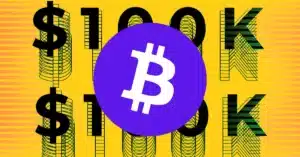How to buy Bitcoin in India

The grand old cryptocurrency has many aficionados in the Indian crypto space. Consensus and YouGov jointly conducted a global survey on crypto and Web3. They published a report on June 23, which shows that 32% of Indians have bought cryptocurrencies at some point and 21% still own digital assets. It also revealed that Bitcoin (BTC) dominated the cryptocurrencies bought.
Imposing a 30% tax on income from digital assets has not hurt the country's sentiment towards cryptocurrencies. According to a report published by the KuCoin cryptocurrency exchange, the digital assets market in India is expected to reach $241 million by 2030.
As the world's most populous country with a population of 1.4 billion, India is home to millions of cryptocurrency investors. According to the data published by the United Nations Economic and Social Commission for Asia and the Pacific, 68% of the demographic falls in the age group of 15-64, which shows that there is a great interest in cryptocurrencies such as BTC.
This article explains how to buy Bitcoin in India on centralized and decentralized exchanges, Strategic Investment Plan (SIP), Over the Counter (OTC) offers or direct Peer-to-Peer (P2P) exchanges.
How to buy BTC in central crypto exchange in India
Catering to millions of Bitcoin buyers, there are hundreds of centralized exchanges in India, both local and international. When zeroing in on an exchange, one should check things like ease of use, security, and low fees.
One must complete the exchange registration process including verifying their phone number and email. The next step is Know Your Customer (KYC) a government mandated procedure that requires the individual to submit identification documents in soft copy along with the exchange. A team verifies these documents before granting access to the applicant. The purpose of KYC regulations is to prevent financial crimes such as identity theft and money laundering.
One can buy Bitcoin through OTC or P2P trading through a central exchange. OTC trading has a minimum order size. For example, CoinDCX has a minimum order size of 15,000 Tether (USDT) or 12,00,000 Indian Rupees (whichever is lower), while WazirX OTC Desk offers large crypto volumes worth $50,000 and above.
It can take the P2P route to buy BTC for low denominations. The role of the exchange is to facilitate a direct agreement between the buyer and the seller, ensuring that no one is left at a loss. The exchange holds the money paid to the seller. After the buyer receives the BTC, the amount is transferred. The buyer can pay in fiat or any other cryptocurrency accepted by the seller.
How to buy BTC on decentralized crypto exchange in India
As the name suggests, a decentralized exchange (DEX) is designed to facilitate P2P transactions without a single person or group of executives having any critical role. Instead, the smart contract executes transactions based on the input provided by the participants.
Direct transactions between users on the blockchain eliminates any need for DEXs to act as middlemen. When transactions are executed on the blockchain network via smart contracts, each transaction incurs a fee along with the transaction fee. But this is less than what a person would bring on a central exchange. Unlike centralized exchanges, DEXs do not control users' funds, so the end user is always in control of their digital assets.
In order to execute a transaction on the DEX, one needs to link their wallet to the exchange. However, DEXs do not allow buying Bitcoin with fiat currency, so one has to transfer another currency for Bitcoin. Transactions can be done without meeting KYC requirements. While transactions on DEXs may be unknown for the time being, they may evolve into a regulatory ecosystem.
How to buy Bitcoin through SIP in India
A systematic investment plan is a disciplined approach to regularly invest a fixed amount in assets over a period of time. SIP allows one to continue buying Bitcoin continuously for a predetermined period of time. SIPs are a fundamental part of regular market instruments including stocks and mutual funds. Thanks to SIPs, investors can take advantage of market fluctuations by holding their portfolios for a longer period of time.
To invest in SIPs, one has to download the app of the service provider offering SIPs, complete the registration and KYC processes and select the appropriate option on the screen. The next step is to select the coin one wants to invest in (in this case, BTC), set the plan date and frequency and start the SIP.
How to do direct P2P crypto transactions in India
You can choose between exchange and exchange methods to conduct direct peer-to-peer crypto transactions. Exchange transactions involve using a P2P service on a crypto exchange platform where users register, complete identity verification (KYC), and then browse and initiate transactions with other users. The platform holds the secret string until both parties confirm the transaction.
Offshore or OTC transactions require finding a trusted buyer or seller, often through private networks or OTC brokers, and directly agreeing on transaction terms. The payment is usually via bank transfer or digital wallet, and the cryptocurrency is transferred directly to the recipient's wallet. With both methods, it is important to prioritize safety and comply with local regulations.
Direct P2P cryptocurrency transactions can be done through popular P2P Bitcoin exchanges such as Paxful, OKX, WazirX and Hodlhodl.com. These platforms facilitate the buying and selling of Bitcoin and other cryptocurrencies by offering various payment options including bank transfers and online wallets.


They typically charge low transaction fees, offer unregulated wallets, and use racquet services to improve security. With features such as auto-matching and multiple payment methods, these exchanges meet various needs by ensuring user security and reducing the risk of fraud and hacking in the P2P crypto market.
Payment methods for cryptocurrency transactions in India
Crypto exchanges in India can transfer funds using bank transfer (debit card or credit card), Instant Payment Service (IMPS) and Unified Payments Interface (UPI). While conducting a P2P transaction, the seller can take payments with standard IMPS and UPI in any case. These modes include standard Paytm, a digital payment service and Lightning UPI, instant real-time transactions on Paytm with one click without a PIN.
One can pay for BTC using other cryptocurrencies such as Ether (ETH), Polkadot Dot (DOT) and Cardano (ADA), although many sellers prefer to use stablecoins such as USDT and USD Coin (USDC). However, buying Bitcoin through PayPal is not yet supported in India.
Methods to store Bitcoin
After buying Bitcoin, the next step is to store it safely. One can choose from several Bitcoin wallets such as desktop wallets, mobile wallets, online wallets, hardware wallets and paper wallets. Many buyers leave their bitcoins with the exchange, which may not be ideal because the exchange holds the cryptocurrency, not the buyer.
Hardware wallets and paper wallets store Bitcoin offline, making it safe from thieves, although one still needs to be careful not to lose the private key or paper wallet. Mobile wallets have the advantage of convenience, and one can carry their BTC and use it any way they want. Desktop and online wallets offer a level of security comparable to keeping bitcoins on exchanges.
Wallets can be classified as guarded or unguarded. When storing funds in escrow wallets, users do not have control over their private keys and funds are controlled by a third party. In contrast, non-secured wallets give users complete control over their private keys and subsequently their funds.

Bitcoin regulations in India
Indian law requires anyone who gains profits from trading virtual digital assets (VDAs), including Bitcoin, to pay a cess tax of 30% and 4%. When you buy Bitcoin on an Indian exchange, the onus is on the exchange to ensure compliance.
However, when buying BTC in an international currency or conducting a P2P transaction in which BTC is exchanged, the buyer and seller must ensure compliance requirements are met.
Should you buy Bitcoin in India?
Although buying Bitcoin in India offers the best possible investment prospects, it should be considered carefully. Despite the legality of cryptocurrencies, there are regulatory uncertainties. Decision making is influenced by variables such as market volatility, lack of detailed guidelines and future policy changes.
Accessibility through exchanges that facilitate rupee transfers is an advantage; However, there are still restrictions on some payment options. It is important to assess one's risk tolerance, understand market dynamics and stay current on regulatory changes.
Although Bitcoin presents opportunities for investment, careful consideration and knowledge of India's dynamic exchange market is essential before making any decision.
This article does not contain investment advice or recommendations. Every investment and business activity involves risk, and readers should do their own research when making a decision.














